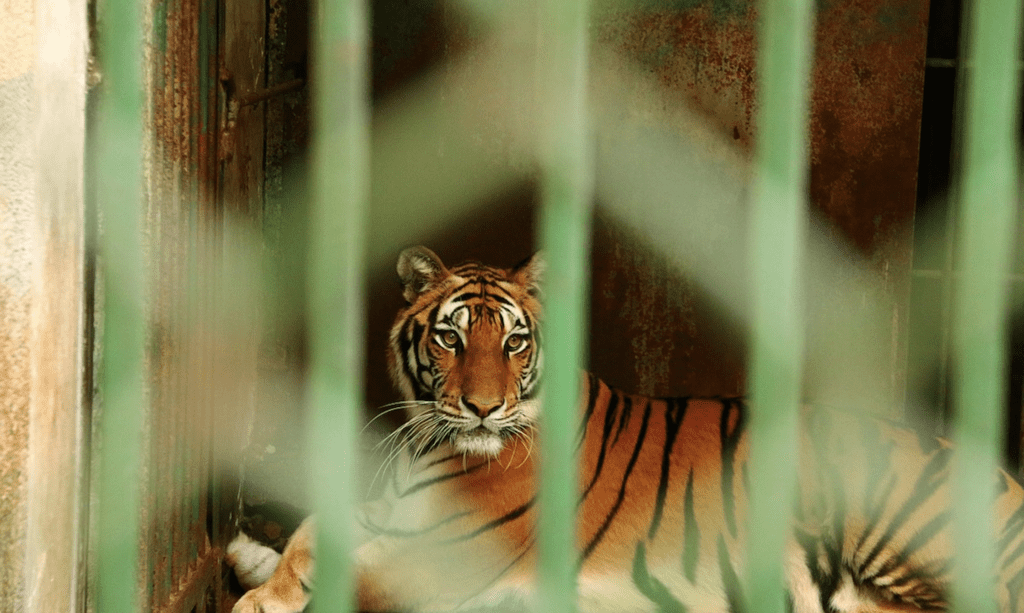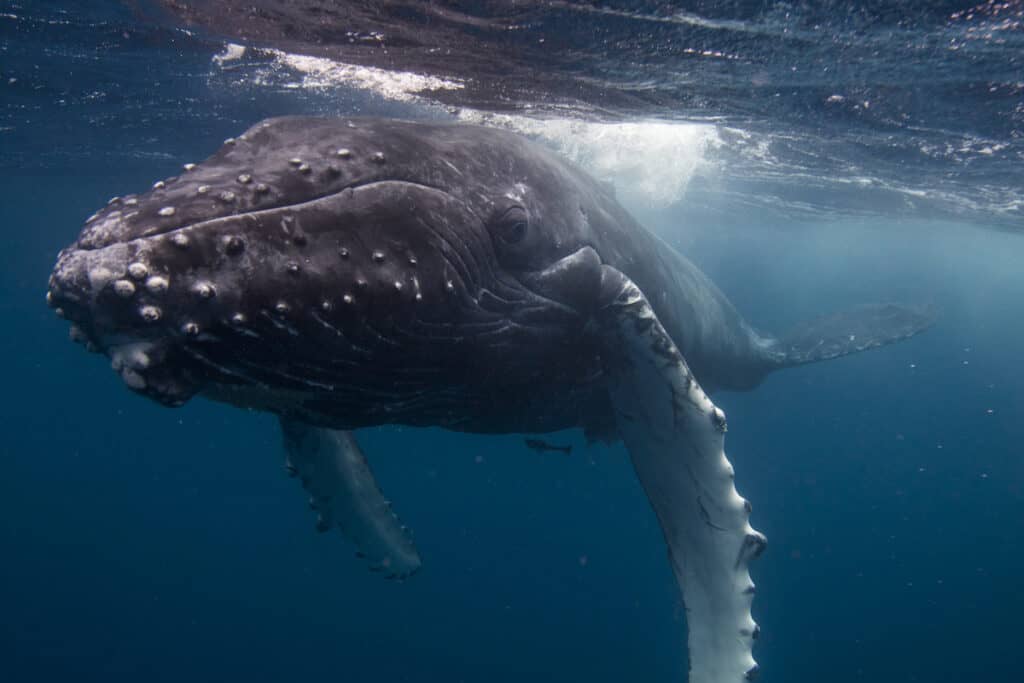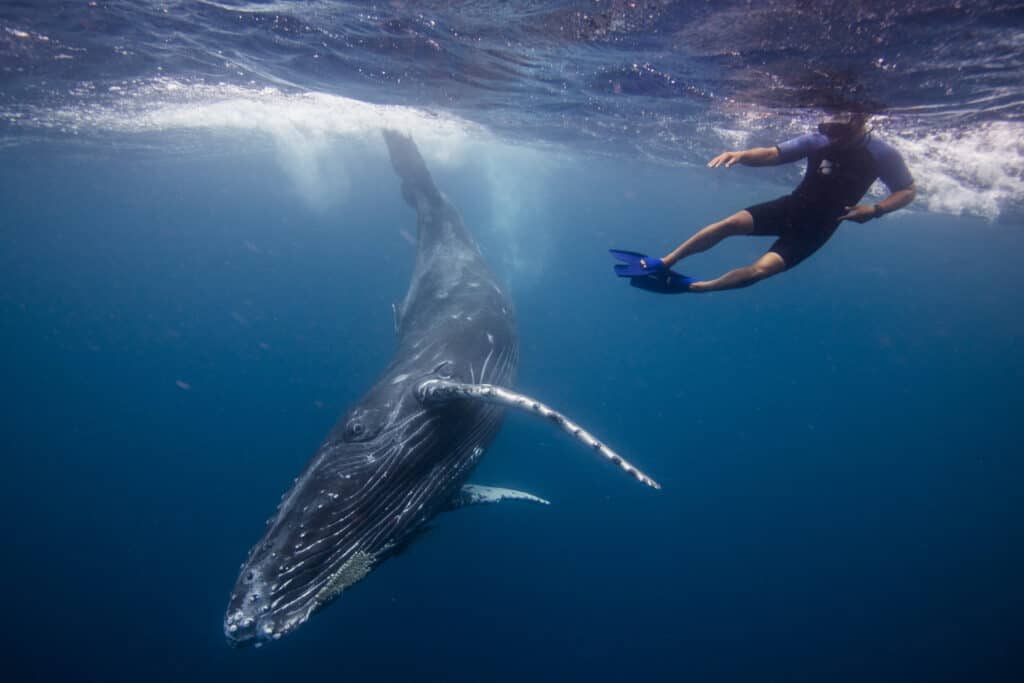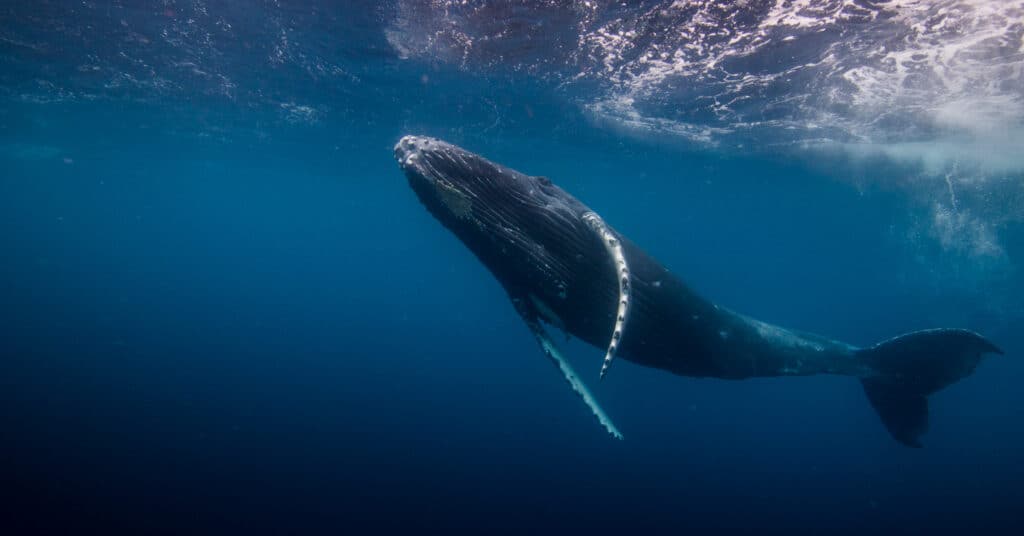When I booked my trip to this tiny Pacific island and saw photos of people in the water with these majestic mammals, I had to know; is swimming with whales in Tonga ethical? I didn’t want to contribute to a harmful tourist activity… but hot damn swimming with humpback whales looked rad.
Why wouldn't you swim with whales?
Swimming with whales or dolphins, watching seal shows, riding ostriches, paying snake charmers, the list of exploitative activities goes on. There are several experiences that get you up close and personal with wild animals. But they can sometimes be harmful to the beautiful creatures you’re so excited to see.
As a naïve young backpacker, I spent money on what I didn’t realize at the time was a major contributor to animal abuse. Back then, in 2012ish, riding elephants and petting tigers was a must-do on anyone’s Asia itinerary. Everyone was doing it, so it had to be ok, right?
But when I look back at it now, I'm ashamed.
I was ignorant and more concerned with having a once-in-a-lifetime experience than I was with the well-being of these wild animals that were never meant to be caged, chained, and drugged. This kind of tourism still takes place all over the world, and many people still don’t understand the harm they’re doing.

SO, is swimming with whales in Tonga ethical, or not?
Ok so the short answer is yes. As far as animal tourism goes, this is one of the better ones.
I did some preliminary research and tried to find articles outlining anything problematic. If you Google “Elephant riding in Thailand” the whole first page is amass with articles urging you to reconsider… but I found nothing to that effect for the whales.
I tried to come up with my own ideas about the possible issues it may cause, but when I couldn’t see anything about feeding, luring, trapping, or fencing them in, I started to feel hopeful.
I went to Tonga and spoke to a couple of tour companies, locals, and other travellers about the ethics and sustainability of tourists swimming with whales. No one had any complaints. It’s also important to remember that, believe it or not, whales can swim faster than you. So ultimately it’s good to know they can always get away if they want to, unliked the animals who can’t leave the zoo.
Rules are in place to protect the whales in Tonga
Tonga’s government has strict guidelines for the tour operators to follow when bringing tourists to see the whales, which include:
- No touching the animals
- No chasing whales that actively try to swim away
- No polluting the water with rubbish
- No cameras with flash or loud noises
- No more than 10 minutes in the water at a time
- Maximum of 4 people in the water at one time
- Maximum of 2 boats in the immediate vicinity of the whales

Photo courtesy of Sebastien Kennerknecht, who was on our boat with a pro camera
So, I went for it.
After being unable to find a reason not to, I decided I had to try it. Chesney and I booked the boat and paid 480 pa’anga (215 USD, 315 NZD) each. I didn’t have to prove I could swim or sign a damn thing, and boarded a small boat the very next day.
I can vouch that there were no rules broken and the whales stuck around of their own free will. As with most wild animals, the majority of attacks occur when a mother feels her baby is threatened. We swam alongside a humpback calf while the mother swam around below. She was definitely keeping her eye on the situation, but letting her baby explore freely. The calf seemed just as curious as we were and was very playful!
Our guide was spiralling underwater, and the bébé copied him, doing its own little spin around. They were basically dancing. When they’d had enough, the whales swam off, and we left them alone. There were no chains, no nets, no lures, no harm done.
It was one of the most epic experiences of my life. If you ever find yourself in Tonga, I highly suggest you go!
But do make sure you find a tour company that’s operating above board. It’s worth paying a little more to ensure you’re not bothering the animals you’re so excited to see. Paying a little more is typically better for the people working there as well.
The one “risk” you run is that most tour companies don’t offer any guarantee that you’ll even see a whale. Which means you may pay $200+ for a several-hour boat tour and no whales. But hey, that’s the cost of ethical tourism babyyyyy!
Obviously, it’s in their best interest to make sure you have the best time. And they all have hawk eyes for spotting fins and other indicators that whales are nearby, so it’s likely you’ll find them. But even if you’re unlucky, most companies will let you reschedule for another day at no extra charge, so make sure you don’t plan to save this for your last day, just in case.

Photo courtesy of Sebastien Kennerknecht, who was on our boat with a pro camera
Is it environmentally sustainable?
Currently, I’d say yes. My only concern is for the future.
Tonga is not high on the average travellers’ radar, like I don’t think I’d have gone unless I was already living in New Zealand. But as travel to rural locations becomes more and more accessible, numbers in less-visited places like Tonga continue to rise. Especially as many of us now want to avoid locations that have already been lost to over-tourism (Sorry, Italy.)
For a relatively poor country, it would be hard to turn paying customers away from the boat, and I fear the existing rules will start to bend. As it stands right now, though, I see no immediate harm. The only thing I could see them improving is switching to electric boats to protect the whale’s environment and those beautiful crystal-clear Pacific waters!
We were lucky enough to have professional photographer, Sebastien Kennerknecht, on our boat the day of our swim. He captured all the amazing photos of the whales we swam with on that day.

